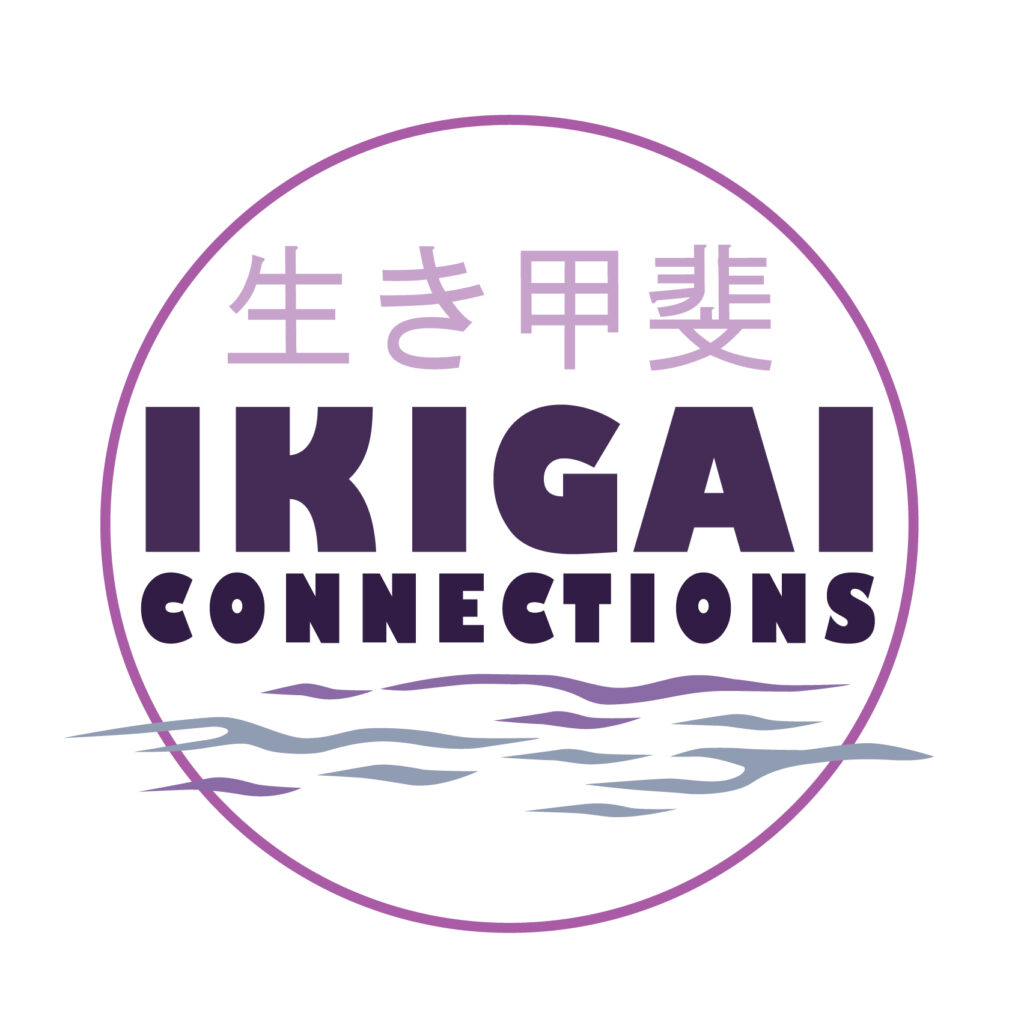Post-JET Jobs: Using Your Bilingual/Bicultural Skills

Guest blog post by Kasia Lynch, Founder of Ikigai Connections, who supports job-seekers with her blog, job board and online training programs. Although not a former JET, she’s a big supporter of the Great Lakes JETAA and previously lived in Shiga-ken, Kobe, Kyoto, Saitama-ken and Tokyo (total 8 years). She also studied on the same KCJS program in Kyoto with WITLife’s Stacy Smith back in 1998-1999.
I’ve often met JET alumni who have come back from the most incredible time of their life in Japan and struggle with their next career steps.
Here are the top 4 things I hear about this struggle:
- What can I possibly do with the experience I gained while on the JET Program?
- I’ve had such a life-changing time in Japan, and I’m super confused about what I want to do.
- I’ve been gone so long in Japan that I don’t know how to find a job in <country>.
- I’m “behind” in the job search and/or no one is hiring.
I will answer each of these struggles and provide my top tips on job searching regardless of where you are at in your journey.
First, let me start off by saying CONGRATULATIONS on a) being accepted to the program and b) completing it. (If you happen to be a current or aspiring JET reading this blog, I’m sure this article can be helpful to you, as well.) Not only is the JET Program very organized and going strong for decades (since 1987), but it is a fantastic way to introduce Japanese people to other countries, bring teachers and CIR to Japan, and help bridge cultural and linguistic barriers between Japan and the world.
Struggle #1: What can I do with my JET experience?
The JET Program allows you an opportunity to skyrocket your personal and professional development, if you let it. The fact that you completed a program in a foreign country and gained valuable intercultural skills is not something to brush over lightly. You were literally plopped in the middle of nowhere, far away from home, and had to trust people with everything from communication to living arrangements until you gained the confidence to do it yourself.
If you were a teacher, you learned about the Japanese education system, working with other teachers, and educating/entertaining youth. You probably were involved in some after-school clubs or activities such as festivals, and you gained knowledge about how Japanese people work together towards a common goal and communicate to get tasks done.
If you were a CIR, then you also learned some pretty intense language lessons that probably made your head nearly explode. By being involved in a governmental office, you were exposed to keigo/honorifics, translating/interpreting opportunities, and the learning lessons of office environments.
All of these are skills are VERY IMPORTANT and transferrable to a career. At a minimum, you got great exposure to the importance of having meishi (see my post about business cards) and experience in observing, and possibly participating in, Japanese communication styles (see my post about hourensou).
Also, living in a foreign country in itself is an important factor that can help you get your next job since it shows you have the ability to thrive in the unknown. Here are some wise words from Steven Horowitz, JETwit publisher: “I never understood the value of a JET experience earlier in my career. I knew there was something good about it but couldn’t put it into any concrete terms. Now that I work in international education, I definitely see it. I work at a law school with international students. I see a clear distinction between the way people work and interact with international students if they have lived (not just traveled but lived) abroad versus those who haven’t. And I see it even more so with JET alumni. You just know they’re going to be aware of and sensitive to communications and interactions with people from other countries. You know they’re going to be able to grade their speech in an appropriate yet not condescending way to non-native English speakers.”
Struggle #2: I’m confused about what I want to do.
A life-changing experience like living abroad and then going through reverse culture shock is definitely confusion-inducing. However, I think that having such a wonderful (and at times, terrible) experience is a fast-paced way to discovering your “ikigai” – or your reason for being. I love this concept so much, that I named my business after it. I have many blog posts on this topic (such as this one and this one), but overall, figuring out what you want to do is something that you do over time and refine as you get older and gain experiences. Of course, many people choose to not combine their ikigai with their career, but if you choose to do so, then you absolutely should. And if your ikigai just happens to be Japan-related, then I encourage you to visit my website, IkigaiConnections.com. My main message is that job-seekers with your Japanese language AND/OR cultural skills are necessary for globally-minded companies.
One final word about finding a job that’s related to your ikigai: it’s not easy, but it’s not impossible. I can help you with this, so please don’t hesitate to read what I’ve already written on this topic via my website. I mean it when I say to NEVER let anyone tell you that something is “impossible”!
Struggle #3: I don’t know how to find a job.
This is a basic struggle that probably most people deal with – especially soon-to-graduate students and JET alumni. Fortunately, there is a plethora of resources available to you such as: your alumni networks like college or JET, social media like LinkedIn, online articles and books. Keep in mind that although it’s not easy nor enjoyable, it’s definitely not impossible. Don’t think that you have to find the perfect job, either – something is better than nothing, so get going!

If you’re interested in getting tips related specifically to finding a job related to Japan, then I have a free gift for you: my FREE 5-Day Online Course, “Japanese Job Search Prep Challenge” which you can access here: https://japanesejobs.teachable.com/p/free-5-day/
Struggle #4: I’m “behind” and/or no one is hiring.
Many JET alumni tell me that after being gone for a certain number of years, they feel out of sorts with regards to the job search timing, and that it feels like all the good jobs are gone. While I agree that many companies with a need for entry-level employees hire around the time most graduates finish school, there are always some kind of opportunities available if you look for them. Remember, try not to expect the perfect job to come knocking on your doorstep. You might need to work at a job that is nowhere near your ikigai in order to make financial ends meet or to avoid having that void on your resume’s career history. Further, don’t forget that some job opportunities might be filled even before they’re announced on the major job boards, so that’s why networking and putting yourself out there is important. Finally, you might just be able to create your own opportunity, whether it’s freelancing, starting your own business, or convincing a company to create a role for you. None of these are impossible, so think about what you want, and take that one baby step forward. Don’t worry if that baby step is in the “wrong direction” because you won’t know until you try.
I’d like to leave you with some tips based on where you currently may be in life and what you think you want to do next.
If you are still in Japan on the JET Program, and want to stay and work in Japan:
- Start your job search now! You’re fortunate to already be in Japan, without having to worry about traveling internationally and/or getting a visa, so jump at this opportunity while you have it.
- I know you’re probably tired after a long day at work, and your evenings and weekends are full of exploring and karaoke contests (the struggle is very real, lol), but you can do many things in your spare time that can help move you in the right direction. Start researching online about potential opportunities, companies you’d like to work for, or job positions you may consider trying.
- If you’re not networking, please start! Japanese business opportunities are all related to excellent relationships, so start attending in-person and online events right away – and don’t be afraid to tell everyone you know that you want to stay in Japan.
- Learn or brush up on skills that are career-related and can be added to your resume. In the current COVID-19 climate, this tip in particular can be easy to get started on due to all of the online training programs being made available.
If you are still in Japan on the JET Program, and want to return home (or a different country) to work:
- Similar to the above, go online and research, research, research. Learn as much as you can about your ikigai, potential job positions, companies you’d like to work with, and job openings so that you are as prepared as you can be upon returning home.
- Although you may not be able to network in person, you can do some serious networking via social media sites like LinkedIn, even if you’re overseas. Nothing is impossible, so get creative in finding a work-around – even in this current coronavirus situation!
- Update your resume and work on your skills. Just don’t be stagnant!
If you completed the program, are back home, and need to find a job:
- I realize this is probably the most stressful situation because you are flailing in these insecure waters, but you’ll be fine. Take a breath, try not to worry, and create a plan of action. Take things one step at a time.
- Similar to the above situations, you need to do your research, network, and upgrade your skills. All of this is doable, and it all starts with one step – so get started!
- If you need some help with the basics of job prep (i.e. resumes, networking), then please consider trying out my free 5-day challenge where I help you gain momentum in 30 minutes a day.
If you completed the program, are employed, but don’t currently utilize your Japan-related skills:
- Get clear on what you want to do with your Japanese language and/or cultural skills, and get researching.
- Note that there may not be any Japan-specific job ads related to your ikigai, but that doesn’t mean they can’t exist nor that you can’t create them.
- Please visit my website for more ideas on how to pivot your career so that it includes the vital skills you learned while on the JET Program.
Also, a bit of advice for those that aren’t yet on the JET Program but want to work/live in Japan:
- The JET Program is an excellent way to get your foot in the door of Japan, so start your application now! There are various ways to work in Japan, of course, but the JET Program might be the best way.
- The next JET Program application starts in September 2020, so you have to plan your life around not only the application but also the wait time before you hear the results. Don’t put all of your eggs in one basket by doing nothing while you wait to hear from JET; take initiative and continue to work, job search (in case you don’t get it) and polish your career-related skills. You’re always selling yourself, so take this time to do so!

Take care, and 頑張ってくださいね ♫


Comments are closed.